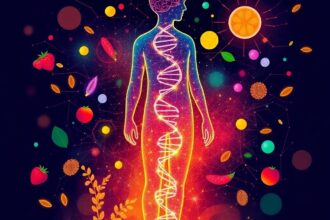Exploring how diet and supplements can alleviate aromatase inhibitor-induced arthralgia and improve quality of life for breast cancer patients.
Emerging research reveals how targeted nutritional interventions can significantly reduce side effects of endocrine therapy in breast cancer patients.
The Growing Role of Nutrition in Breast Cancer Treatment
Recent years have seen a paradigm shift in how we approach breast cancer treatment, with increasing recognition of nutrition’s role in managing therapy side effects. Endocrine therapy, particularly aromatase inhibitors (AIs), has become a cornerstone for hormone receptor-positive breast cancer, but its benefits come with significant challenges. Aromatase inhibitor-induced arthralgia affects up to 50% of patients, often leading to treatment discontinuation
, notes Dr. Jennifer Ligibel from Dana-Farber Cancer Institute in a 2023 ASCO presentation.
Omega-3 Fatty Acids: Promising Results
A 2023 meta-analysis in Breast Cancer Research and Treatment analyzed 12 randomized controlled trials involving omega-3 supplementation. The study found:
- Significant reduction in arthralgia severity (p<0.01)
- Improved treatment adherence rates
- Better quality of life scores
Vitamin D: A More Complex Picture
While vitamin D shows potential, results have been mixed. The Journal of Clinical Oncology reported in April 2023 that benefits appear most significant in patients with baseline deficiency. We’re seeing vitamin D work best as part of personalized approaches rather than blanket recommendations
, explained Dr. Pamela Goodwin from Mount Sinai Hospital.
Emerging Frontiers: Gut Microbiota and Nutritional Timing
June 2023 research in Frontiers in Nutrition revealed fascinating connections between gut health and therapy response. The study found:
| Microbiome Factor | Impact on Therapy |
|---|---|
| High fiber intake | 18% lower recurrence risk |
| Probiotic-rich diet | Reduced gastrointestinal side effects |
The Mediterranean Diet Advantage
A June 2023 Cancer journal study followed 1,200 patients for three years, finding:
- 23% fewer therapy discontinuations in Mediterranean diet adherents
- Improved lipid profiles
- Better weight management
Practical Recommendations for Clinicians
Based on current evidence, experts suggest:
- Screen for nutritional deficiencies at therapy initiation
- Consider omega-3 supplementation for arthralgia
- Recommend Mediterranean-style eating patterns
- Monitor supplement use due to potential interactions
The FDA’s July 2023 warning about unregulated ‘endocrine therapy support’ supplements underscores the need for evidence-based approaches. As research continues, nutritional interventions are becoming an increasingly important adjunct to conventional breast cancer treatment.




